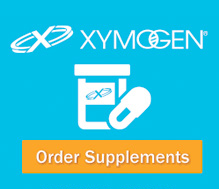Progesterone is primarily a female hormone, but small amounts are also found in males. The ovaries and adrenal glands secrete progesterone; however, during pregnancy the placenta produces it to support reproduction.
Progesterone – The Regulatory Hormone
Progesterone is a major regulatory hormone, so if its levels don’t rise naturally throughout your day, your body can become out of control on a cellular level. Similar to estrogen and testosterone, progesterone levels decrease with age. Females often experience drastic drops in progesterone during menopause.
Progesterone Benefits
Progesterone assists your estrogen balance and protects against endometrial cancers of the uterus. It also protects against osteoporosis by simulating osteoblasts (which promote bone growth).
- Protects against breast cancer
- Slows down gene systems (BCL2) that promote cancer
- Produces brain-protecting agents
- Increases libido
- Elevates states of well-being
- Increases metabolism
- Improves sleep quality
- Increases estriol, an anti-cancer estrogen
- Is a natural diuretic
- Balances blood clotting
- Levels out blood sugar
- Lowers LDL cholesterol
- Has a sedative effect on the nervous system
Low Progesterone Culprits:
- Aging
- Stress and increased cortisol
- Antidepressants
- Sugars
- Saturated fats
- Vitamin deficiencies (A, C, B6, Zinc)
- Decrease in thyroid hormones
Synthetic Dangers Of Progestins
Synthetic Progestins (even FDA-approved Provera) are not recognized by your natural progestin receptors and can have dangerous effects on your body, such as:
- Increased chance of birth defects
- Weight gain
- Breast tenderness
- Increased blood pressure
- Fluid retention
- Anxiety
- Problems sleeping
- Blood clots
- Depression
- Acne
- Sudden loss in vision
Bioidentical Progesterone
Natural progesterone is biologically recognized in your body. This helps to protect the endometrium and preserves the benefits of estrogen.
Symptoms of Low Progesterone:
- Acne
- Irregular periods
- Anxiety
- Arthritis
- Weight gain
- Frequent bloating
- Tenderness in breasts
- Loss of sex drive
- Mood swings
- Unusual food cravings
- Headaches
- Problems sleeping
- Depression
- Hot flashes
Progesterone Therapy
The effectiveness of progesterone therapy greatly depends on its balance with estrogen. The ratio of estrogen to progesterone, as well as estrogen to testosterone, is more important than the actual levels of the individual hormones.
Estrogen and progesterone work together to control normal body functioning and cell growth. For example, research shows that estrogen alone induces tissue growth in the uterus that can lead to uterine cancers; however, when administered in conjunction with natural progesterone, the risk is greatly reduced or eliminated.
Women going through menopause have some degree of imbalanced estrogen. If your estrogen/progesterone ratios are re-calibrated, you’re better protected against breast and uterine cancers.
Treatment Options
Crinone (a vaginal cream) and Prometrium (capsules) are two bioidentical progesterone products. Compounding pharmacies can also develop progesterone sublingual triturates, which absorb very well. When taking progesterone capsules, your liver will deactivate most of it. This build up of metabolites can cause mild sedative effects.
Vaginal creams are great for concentration in the uterus, which helps to protect the endometrium. It usually takes 2 – 4 weeks of use to produce adequate levels in the body. You will then begin to notice the health benefits associated with balanced progesterone. It can be hard to measure the prescribed dose of cream-based applications. Your doctor can help you determine what amount is best for you.
To optimally balance your levels, progesterone works best when taken twice daily. If you choose to take your dose once daily, we suggest taking it right before bedtime (for maximum absorption).
If you choose progesterone tablets, they are best taken with meals containing some fat.
Side Effects
If excess progesterone is administered, mild side effects can occur. These usually don’t last more than a few hours, but can occasionally last up to eight.
- Nipple tenderness
- Faintness or dizziness
- Drowsiness
- Instability
- Increased appetite
- Hot flashes
- Anxiety
- Feeling drunk
*If you experience any of these symptoms, please tell your doctor and reduce your dosage.
Women going through menopause create barely any natural progesterone; however, they do still produce estrogen creating an estrogen dominance. It’s not unusual to have some bleeding when starting progesterone therapy as a result. This is usually at its worst within the first few months of therapy.
Monitoring
We will monitor your blood work to ensure the optimal levels are being reached. It’s best to test your progesterone levels 4 – 5 hours after your first morning dose.
Progesterone Facts
- Progesterone is a steroid hormone that supports pregnancy and the female menstrual cycle.
- Progesterone is produced in the ovaries and adrenal glands.
- During pregnancy, progesterone is also produced in the placenta.
- Progesterone is stored in adipose fat.
- Increased levels of progesterone are produced during pregnancy.
- Drinking milk increases your levels of bioavailable progesterone.
- Similar to all steroid hormones, progesterone is synthesized from pregnenolone, which is derived from cholesterol.
Prevent Many Of Today’s Chronic Medical Conditions
Many of today’s chronic medical conditions such as Heart Disease, Cancer, Alzheimer’s, Diabetes and stroke, can be prevented and we want to show you how.
Denver Hormone Health works to balance hormone levels in both men and women to combat these symptoms and vastly improve quality of life without the adverse effects associated with many other forms of treatment. We are able to accomplish these amazing results by utilizing natural bioidentical hormone therapy. In addition to hormone replacement therapy, Denver Hormone Health offers customized nutrition counseling, weight management and exercise plans.
We look forward to helping you achieve optimal health, wellness, and true vitality, contact us today!


